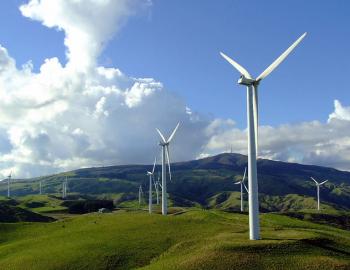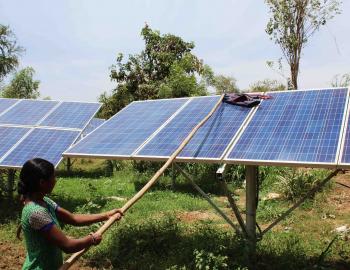Policy brief: Still a long way to go - Energy security and green growth in Indonesia
Policy brief: Still a long way to go - Energy security and green growth in Indonesia
Issues related to energy security are at the heart of the political debate in Indonesia, because economic growth depends critically on access to affordable energy. Demand for energy is growing fast: total primary energy demand is expected to more than triple by 2030; electricity demand is set to quadruple and demand for transport fuel will increase more than threefold. The current growth trajectory is not economically and environmentally sustainable, as is evidenced by the increased dependence on energy imports, the growing problem of mobility and air quality in urban areas, continued loss of forest areas and biodiversity and the steep rise in energy-related greenhouse gas emissions.
This policy brief by Clingendael examines potential solutions to this trend, that are more sustainable and have a positive impact on energy security. These kinds of solutions typically require large-scale investments and consistent long-term policies, which can often be difficult with the Indonesian political system.
The authors argue that structural challenges in Indonesian politics and governance mean the country cannot work on a ‘business as usual’ basis in fossil fuel-based responses to energy security challenges, making it harder for green growth solutions to break through. While this would suggest that the case for green growth is convincing enough to outweigh the challenges the authors highlight glimmers of hope when it comes to the medium-term horizon.
The key questions of this policy brief relate to the legitimacy of energy security considerations as enabler for green growth and what can be done to shift towards a more climate-compatible pathway.
Notwithstanding the challenges facing Indonesia’s uptake of clean energy, several positive influences are emerging that can strengthen the convergence of green growth and energy security agendas:
- Political change and improved governance and coordination. Charting a course that maximises energy security while reducing emissions will require coordinated policymaking and credible institutions for effective implementation.
- Increased focus on bringing in FDI. Growing interest from international institutional investors in moving to climate-compatible assets can present another opportunity for green growth.
- Private sector and grass-roots mobilisation. The financial sector and business associations have started to recognise that sustainability presents opportunities to save costs and to develop new markets, and have recently launched several initiatives looking to turn green growth into a competitive option.



